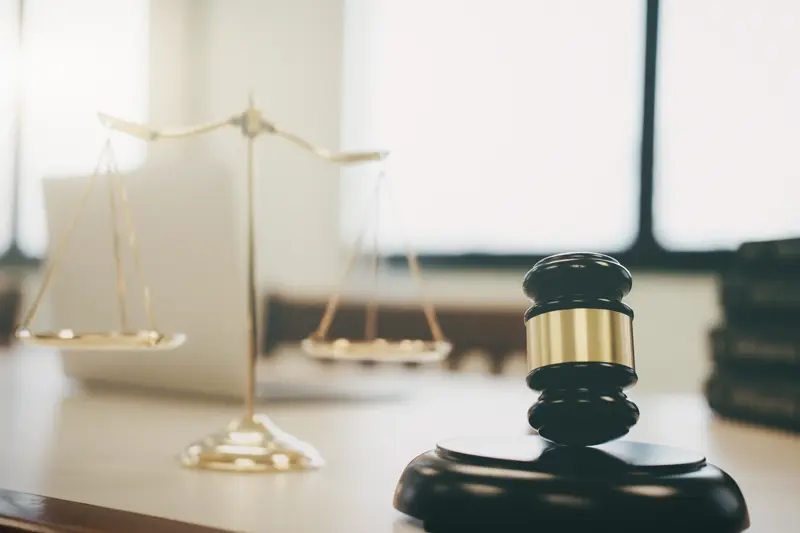The discovery process is a vital part of the pre-trial litigation process that helps shed light onto facts related to the case, unknown to both parties. Imagine a scenario where one party holds all the evidence while the other is deprived of the details!
The formal discovery process in a lawsuit plays a crucial role in leveling the playing field, ensuring transparency and further solidifying a party’s case. Now, let us break down the term, understand the details and how a medical record retrieval company can help the cause.
Understanding the Formal Discovery Process in a Lawsuit
The legal discovery process is where both parties exchange every kind of information, documents and evidence related to the case. This enables both parties to understand each other’s claims/defenses, thereby fostering a fair trial or settlement.
Objectives:
- Prevent last-minute surprises
- Promote fairness and an efficient trial process
- Enable both parties to evaluate the case
- Encourage settlement discussions.
The discovery process is governed by the Rules of Civil Procedure, which vary by jurisdiction, but generally follow a similar framework. In the U.S., federal cases adhere to the Federal Rules of Civil Procedure (FRCP), while state courts have their own sets of rules.
What Happens During the Formal Discovery Process in a Lawsuit?
- Interrogatories
These are basically written questions that one party sends to another, requiring written answers, which would be under oath.
Interrogatories typically seek basic information such as:
- Names and contact details of witnesses
- Details about insurance coverage
- The timeline of events leading to the lawsuit
Imagine a scenario of a medical malpractice lawsuit, where an interrogator might ask a medical facility: “Please describe the qualifications and credentials of the attending physician who treated the plaintiff on DD/MM/YYYY.”
- Requests for Production of Documents (RPDs)
This would be a formal request to the opposing party seeking the submission of relevant documents, records, or tangible evidence such as:
- Medical records
- Emails and correspondence
- Employment records
- Contracts
In cases involving personal injury or medical malpractice, RPDs play a vital role in obtaining crucial medical records that might have documented a plaintiff’s injuries and treatments. These records provide relevant evidence in assessing the subsequent liability and damages.
- Subpoenas
They are legal documents that command a third party to either testify as a witness or provide documents relevant to the case.
Subpoenas are often used to obtain:
- Expert witness testimonies
- Business records
- Financial statements
- Other evidence
For example, in a workplace injury case, a subpoena may request OSHA safety records, CCTV footage or even a person to testify to establish whether an employer has violated workplace safety laws.
- Depositions
Depositions are in-person, recorded testimonies that are usually given under oath, before the trial. The process typically involves attorneys from both sides, asking witnesses or other parties involved questions, and a court reporter transcribes the entire session.
Depositions/deposition summaries allow attorneys to:
- Evaluate the transparency of witnesses
- Record testimony beforehand in case a witness is unavailable at trial
- Get witness statements recorded under oath, that can be used later in court
For instance, in a car accident lawsuit, an attorney might depose the first responding police officer to ascertain details of the accident report and his observations at the scene.
- Requests for Admissions
These are a set of statements a party asks the opposing party to admit or deny a cause or an action, thereby helping to narrow the contested issues in a case.
For e.g., in a breach of contract case, a request for admission might read like this: “Admit that you did not send invoices by the agreed-upon date.” If admitted, this fact will be considered established and does not need any further proof submissions at trial.
- Independent Medical Examinations (IMEs)
IMEs are medical examination(s) requested by the opposing party to assess the plaintiff’s claimed injuries.
In personal injury cases, a defendant’s legal team may require an independent medical professional to examine the plaintiff to verify the severity of injuries. This helps prevent fraudulent or exaggerated claims.
Limitations and Protections in Discovery
While the discovery process is diversified, it is not boundless. There are several legal doctrines that protect parties from unfair or overly burdensome discovery requests.
- Attorney-Client Privilege: The most common legal binding would be the privilege of confidentiality regarding all communication between a client and their attorney.
- Relevance and Proportionality: Courts have the right to limit discovery requests that come as overly broad, irrelevant, or excessively burdensome.
- Work Product Doctrine: Certain aspects that are private such as internal legal strategies, private notes, and attorney research are safeguarded from discovery.
Additionally, parties can also file motions to compel if the opposing side refuses to comply with discovery requests or fails to provide adequate responses.
The Role of Discovery in Case Outcomes
Discovery has the power to alter the outcome of a lawsuit. If one party can uncover damning evidence, the opposing party will be left with no other choice but to settle rather than pushing forward, risking an unfavorable trial verdict. Contrarily, if discovery fails to produce sufficient proof, the case may be dismissed even before reaching trial.
- Settlement Encouragement
Many civil cases settle during or after discovery because both parties can assess the strength of their opponent’s case. If the evidence strongly favors one side, the other may agree to a negotiated settlement rather than endure a costly trial.
- Trial Preparation
If a case proceeds to trial, discovery ensures that both sides are fully prepared. Witness depositions, document reviews, and interrogatory responses help attorneys develop a clear strategy, cross-examine witnesses effectively, and present a compelling case before a judge or jury.
Why Collaborate with MOS for Professional Medical Record Analysis?
For medical records in legal discovery, Managed Outsource Solutions (MOS) offers medical record review services that include accurate and comprehensive record analysis, which can strengthen your legal strategy.
Our team of legal experts uncover key critical medical evidence in clear and concise format suited for litigation. We ensure confidentiality and compliance with all regulations, enabling you to peacefully formulate your legal strategy while we take care of complex medical records.
Final Thoughts
The formal discovery process is the foundation of fair litigation, ensuring that both parties have equal access to the information they need to build their cases. From interrogatories to depositions, each discovery tool serves a unique purpose in discovering the truth and promoting justice.
If you are involved in litigation, understanding discovery is crucial. Proper legal guidance and thorough document analysis can make the difference between a strong case and a lost opportunity.
Solidify Your Case with Data-driven Medical Record Reviews
Gain that competitive advantage through our advanced tools and strategies!




